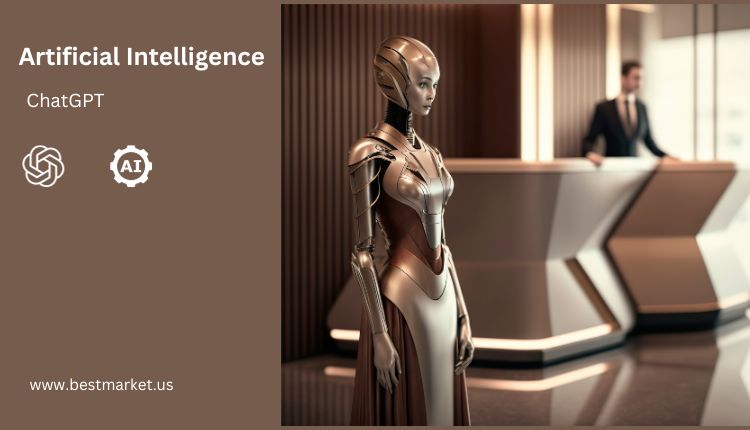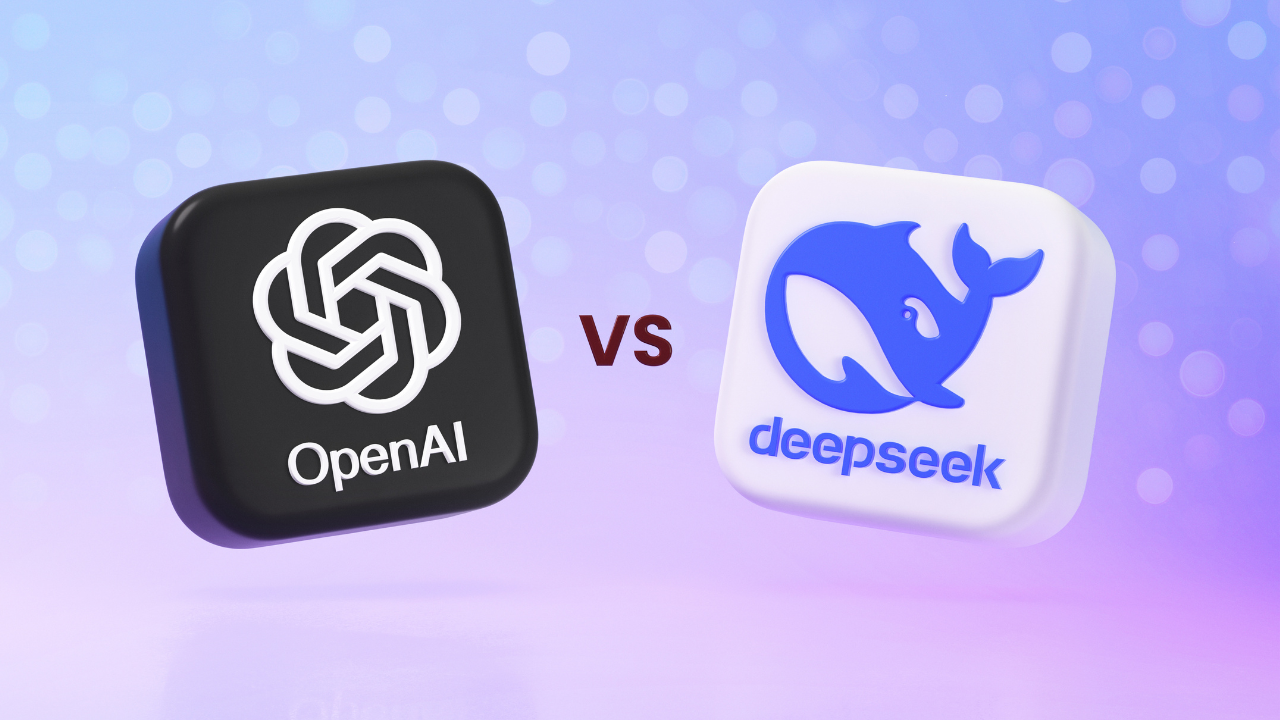Local Storage seems to be disabled in your browser.
For the best experience on our site, be sure to turn on Local Storage in your browser.
Artificial intelligence (AI)

Artificial intelligence (AI)
1. Introduction to Artificial Intelligence
Artificial Intelligence (AI) is a rapidly advancing field of computer science that aims to create intelligent machines capable of mimicking human cognitive functions. It involves the development of algorithms and technologies that enable computers to perceive, learn, reason, and make decisions, similar to human intelligence. AI has emerged as a powerful tool with vast potential to revolutionize various industries and sectors, ranging from healthcare and finance to transportation and entertainment. This article provides an overview of artificial intelligence, delving into its fundamentals, applications, ethical implications, impact on healthcare, future prospects, as well as the challenges and limitations that accompany its development.
Defining Artificial Intelligence
Artificial Intelligence (AI) is like having a brainy sidekick that can think, learn, and make decisions just like humans do, but without the need for caffeine breaks. It's the science of creating intelligent machines that can perform tasks that usually require human intelligence, such as recognizing speech, driving cars, or beating us at chess (yeah, thanks for that, AI). In simpler terms, it's about making computers smart enough to do things on their own, so we humans can focus on more important things like deciding which type of pizza to order.
Historical Development of Artificial Intelligence
The journey of AI started way back in the 1950s when scientists had grand visions of creating machines that could mimic human intelligence. They wanted computers to think, reason, and solve problems just like us, which was a pretty ambitious goal. Over the decades, AI has had its ups and downs, with periods of high enthusiasm followed by bouts of disappointment (kind of like trying to assemble IKEA furniture). But as technology advanced, so did AI. Breakthroughs in areas like machine learning, data analysis, and computing power brought us closer to achieving our AI dreams. Today, AI is not only a reality but is also becoming a part of our daily lives, whether we realize it or not. It's the brains behind virtual assistants, recommendation systems, and those annoyingly smart spam filters.
Importance of Artificial Intelligence in Today's World
AI is not just a fancy buzzword floating around tech conferences. It has become an integral part of our world, shaping industries, transforming businesses, and even affecting your dating life (yes, AI-powered dating apps exist, and they claim to know more about your love life than you do). With AI, we can automate repetitive tasks, make faster and more accurate decisions, and extract meaningful insights from enormous amounts of data. It's like having a personal assistant who can crunch numbers at lightning speed, analyze patterns, and give you insights that you probably missed because you were too busy binge-watching cat videos.
2. The Fundamentals of Artificial Intelligence
Machine Learning and Neural Networks
Machine learning is the cool kid of AI. It's a technique that allows computers to learn and improve from experience without being explicitly programmed. Think of it as teaching your dog to do tricks by rewarding them when they get it right (except now you're dealing with lines of code instead of doggy treats). Neural networks, on the other hand, are like the brain cells of AI. They are algorithms inspired by the human brain that can recognize patterns, make predictions, and even dream about electric sheep (just kidding, they can't dream, but they're pretty good at spotting a cat in a photo).
Natural Language Processing
Natural Language Processing (NLP) is the technology behind those voice-activated assistants that answer your questions and carry out your commands. It's like having your own personal Siri or Alexa, except they don't judge you for eating ice cream straight from the tub. NLP uses algorithms to analyze, understand, and generate human language. It allows computers to interpret spoken or written words, understand the context, and respond in a way that's delightfully human-like (well, most of the time).
Computer Vision and Image Recognition
Computer vision, as the name suggests, is the branch of AI that helps computers see and interpret images and videos. It's like giving your computer a pair of virtual eyes, minus the creepy stares (hopefully). With computer vision, AI can analyze visual data, recognize objects, and even understand emotions (yes, computers can now tell if you're happy or sad just by looking at you). It's the technology behind facial recognition, self-driving cars, and that app that transforms you into a dancing potato (because who doesn't want to be a dancing potato?).
3. Applications of Artificial Intelligence
Virtual Assistants and Chatbots
Virtual assistants and chatbots are like those friends who are always there for you, attentively listening to your problems and pretending to care (AI chatbots are really good at pretending). They can answer questions, help with tasks, and even make small talk. Just be careful not to catch feelings for your AI buddy, they won't appreciate it.
Recommendation Systems
Do you ever wonder how streaming services magically know what TV shows and movies to suggest for you? Well, you can thank AI-powered recommendation systems for that. They analyze your viewing habits, match them with other users' preferences, and offer you a personalized list of recommendations that will keep you glued to your couch for hours (sorry, not sorry).
Autonomous Vehicles
Autonomous vehicles are like the Uber drivers of the future, except they never ask you about your weekend plans. AI is the driving force behind these driverless wonders, helping them navigate roads, avoid obstacles, and pretend not to judge your questionable taste in music (they can't roll their eyes, but we know they want to).
4. Ethical and Societal Implications of Artificial Intelligence
Privacy and Data Protection
AI may be smart, but it still has a lot to learn about the concept of personal space. With AI systems constantly collecting and analyzing data, privacy becomes a major concern. Who has access to your data? How is it being used? Will AI robots one day hold embarrassing photos of you? These are the questions we should be asking (and maybe also deleting those embarrassing photos).
Algorithmic Bias and Fairness
AI systems are only as good as the data they're trained on, and that can be a problem. If the data used to train AI algorithms is biased, the resulting AI systems can perpetuate those biases (oops, sorry, AI is not perfect after all). It's like asking a biased friend for dating advice – you might end up in an awkward situation. Ensuring fairness and accountability in AI algorithms is crucial to avoid unintended consequences.
Impact on Employment and Workforce
AI is not just taking over the world of virtual assistants and recommendation systems. It's also making its move into industries and jobs that were once considered safe from robot invasions. From manufacturing to healthcare, AI is changing the workforce landscape. But hey, don't worry, humans still have some advantages like emotions, creativity, and the ability to laugh at bad jokes (robots just can't compete with that... yet). And there you have it, a crash course in Artificial Intelligence – the brainchild of scientists, the sidekick of technology, and the reason why your dating app suggests the perfect match (or so it claims). It's a fascinating world of smart machines and complex algorithms that have the potential to revolutionize our lives. So next time you interact with a virtual assistant or get a movie recommendation from an AI system, remember to appreciate the cleverness behind it all.
5. Artificial Intelligence in Healthcare and Medicine
Medical Diagnosis and Treatment
Artificial intelligence has shown great promise in the field of healthcare and medicine. One area where it is making significant strides is in medical diagnosis and treatment. With its ability to analyze vast amounts of data and detect patterns, AI systems can assist doctors in diagnosing diseases more accurately and efficiently. Imagine a doctor's assistant that never gets tired or overwhelmed by patient files and can instantly cross-reference symptoms, medical history, and test results to provide a more informed diagnosis. This could potentially save lives and reduce misdiagnoses.
Drug Discovery and Development
Developing new drugs is a time-consuming and expensive process. However, AI is revolutionizing the field of drug discovery and development. By using machine learning algorithms, AI systems can analyze massive datasets of molecular structures and biological interactions to identify potential drug candidates. This can streamline the drug development process, making it faster and more efficient. We might soon see breakthrough medications hitting the market sooner than ever before.
Healthcare Management and Predictive Analytics
Managing healthcare systems can be a complex task, but AI is here to help. With predictive analytics, AI can analyze various factors like patient records, medical histories, and population data to make predictions about disease outbreaks, hospital occupancy rates, and resource allocation. This can enable healthcare providers to better plan for the future, optimize operations, and ensure that patients receive the care they need in a timely manner. In short, AI is helping healthcare professionals navigate the complex waters of resource management.
6. The Future of Artificial Intelligence
Advancements in AI Research
The future of artificial intelligence looks incredibly promising. AI researchers are constantly pushing the boundaries of what is possible, exploring new algorithms, and developing innovative applications. With advancements in deep learning, natural language processing, and reinforcement learning, AI systems are becoming more capable of performing complex tasks and achieving human-like intelligence. Who knows what groundbreaking discoveries and inventions await us in the world of AI?
AI and Robotics Integration
As AI continues to progress, so does its integration with robotics. We are already witnessing the rise of AI-powered robots in various industries, performing tasks that were previously only possible for humans. This integration opens up exciting possibilities for automation, from self-driving cars to robotic assistants in our daily lives. AI and robotics are joining forces to revolutionize the way we work and interact with machines, making our lives easier and more efficient.
AI in Space Exploration and Colonization
Artificial intelligence is also making its mark in space exploration and colonization efforts. From autonomous spacecraft navigation to intelligent rovers exploring distant planets, AI is helping us unravel the mysteries of the universe. Additionally, as we contemplate the colonization of other planets, AI will be crucial in providing solutions for sustainable living in hostile environments. Who knows, one day AI might be helping us build self-sustaining colonies on Mars!
7. Challenges and Limitations of Artificial Intelligence
Interpretability and Explainability
One challenge of AI is interpreting and explaining its decisions. AI algorithms often work as black boxes, making it difficult to understand how they arrive at a specific conclusion. This lack of interpretability raises concerns about accountability and trust. As AI becomes more integrated into critical domains like healthcare and law enforcement, it's essential to develop methods to make AI transparent and explainable to ensure ethical and responsible use.
Ethical Concerns and Regulations
Ethical considerations surrounding AI are becoming more prominent. Questions arise regarding AI bias, privacy concerns, and potential job displacement. It's important for society to establish regulations and ethical frameworks to ensure AI is used in a manner that aligns with our values and safeguards against misuse. Striking the right balance between innovation and responsible development is crucial for harnessing AI's potential for the greater good.
Technical Limitations and Risks
While AI has made impressive advancements, there are still technical limitations and risks. AI systems heavily rely on the quality and quantity of data they are trained on, which can lead to biased or inaccurate results if the data is not representative or comprehensive enough. Additionally, AI systems are susceptible to adversarial attacks, where malicious actors intentionally manipulate inputs to deceive the algorithms. Continual research and development are necessary to overcome these limitations and minimize risks associated with AI technologies.In conclusion, artificial intelligence is transforming the way we live, work, and interact with technology. With its ability to process and analyze massive amounts of data, AI has the potential to drive innovation, improve efficiency, and solve complex problems across industries. However, it also raises important ethical considerations and challenges that need to be addressed. As the field of artificial intelligence continues to evolve, it is crucial to strike a balance between technological advancements and ensuring the responsible and ethical use of AI. By harnessing the power of AI while maintaining a cautious approach, we can unlock its full potential and pave the way for a future where humans and intelligent machines coexist harmoniously.
FAQ
1. What is Artificial Intelligence (AI)?
Artificial Intelligence refers to the development of intelligent machines that can perform tasks that typically require human intelligence, such as learning, reasoning, problem-solving, and decision-making. It involves the creation of algorithms and technologies that enable computers to mimic cognitive functions and process vast amounts of data to derive insights and make informed decisions.
2. What are the main applications of Artificial Intelligence?
Artificial Intelligence has a wide range of applications across various sectors. Some key applications include virtual assistants and chatbots for customer service, recommendation systems for personalized suggestions, autonomous vehicles for transportation, and medical diagnosis and treatment in healthcare. AI is also utilized in areas such as finance, cybersecurity, agriculture, and entertainment, among others.
3. What are the ethical implications of Artificial Intelligence?
Artificial Intelligence presents several ethical considerations. These include concerns related to data privacy and security, as well as algorithmic biases and fairness. The use of AI in decision-making processes, such as hiring or loan approvals, can raise questions about transparency and accountability. Additionally, the potential impact of AI on employment and workforce dynamics requires careful attention to ensure a fair and inclusive transition.
4. What are the challenges and limitations of Artificial Intelligence?
While Artificial Intelligence has made significant advancements, there are still challenges and limitations to consider. Interpreting and explaining the decision-making process of AI systems, known as interpretability, remains a challenge. Ethical concerns, such as the potential for AI to be used for malicious purposes, also need to be addressed. Furthermore, technical limitations, such as the need for massive computing power and extensive data, can pose constraints on the development and deployment of AI systems.
















Comments